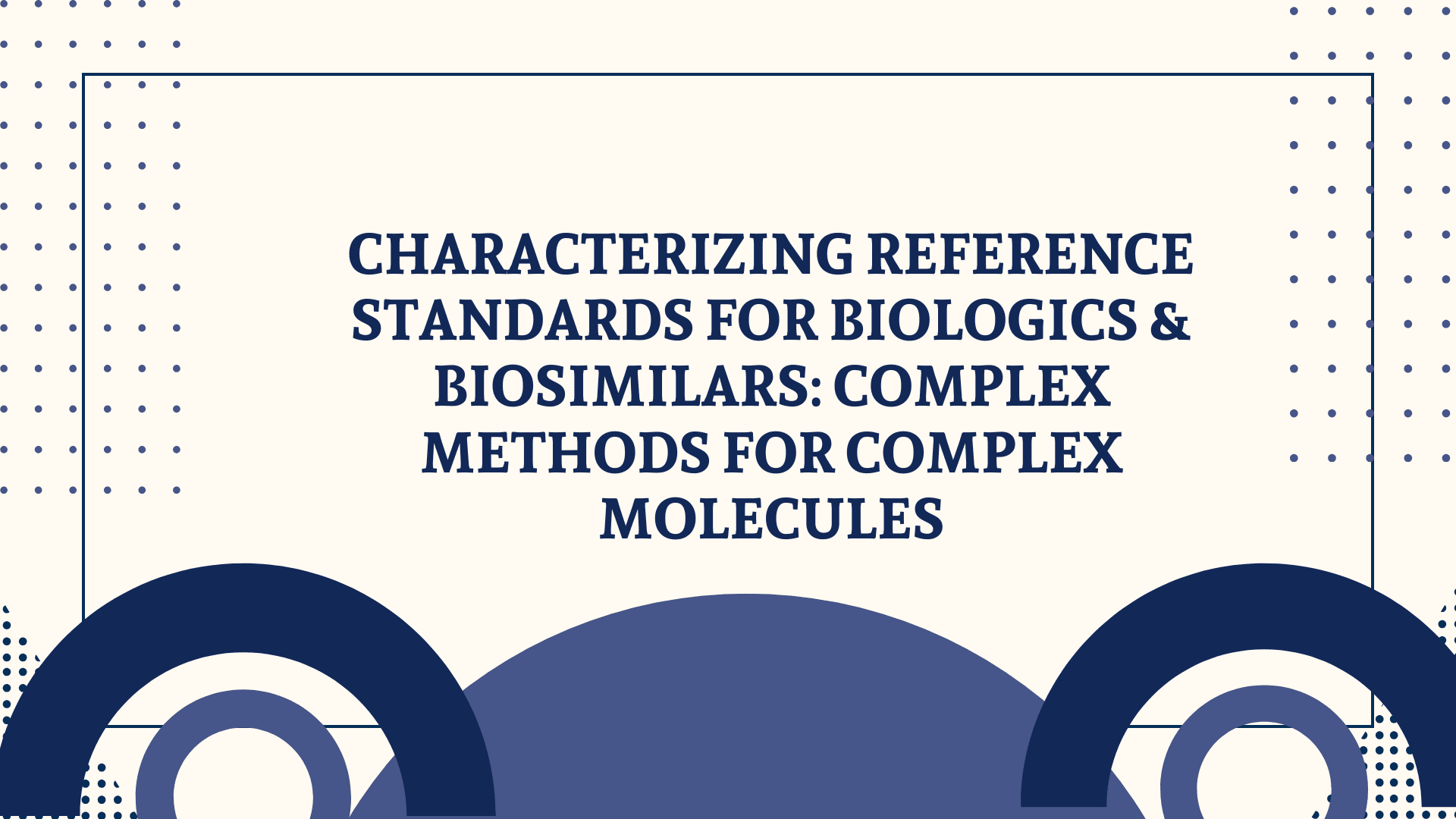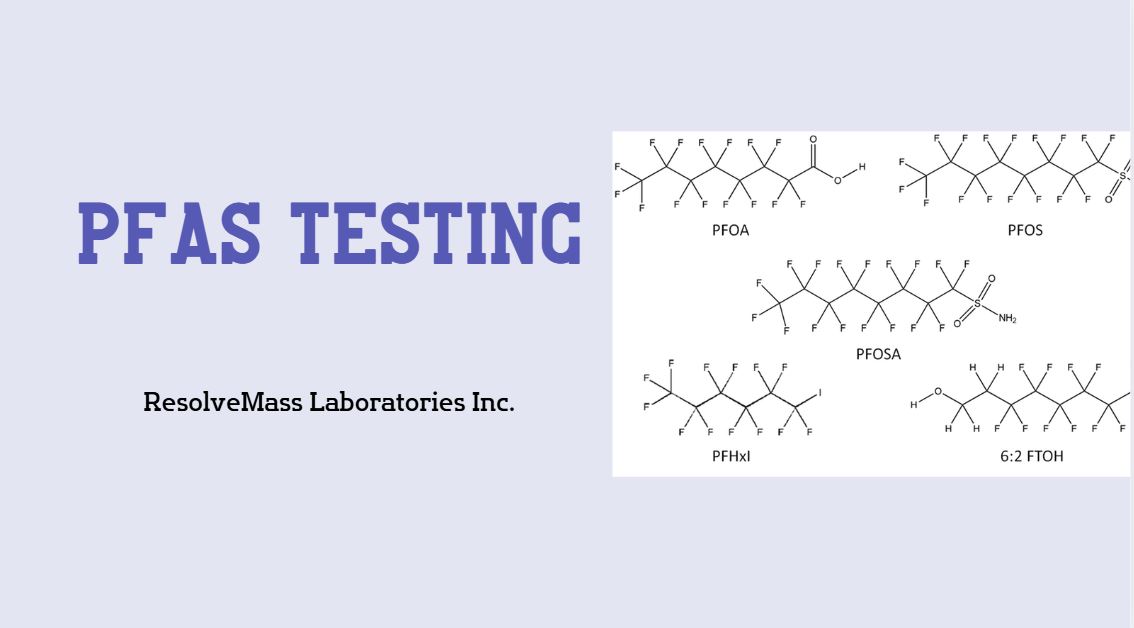Introduction – Reference Standard Characterization for Biologics
Reference Standard Characterization for Biologics is the foundation for ensuring the quality, reliability, and safety of therapeutic proteins and biosimilars. Unlike traditional small-molecule medicines, biologics are far more complex, as they are derived from living systems. This makes their testing and evaluation much more challenging. At ResolveMass Laboratories Inc., we specialize in advanced analytical solutions that not only meet global regulatory expectations but also provide deeper insights into molecular behavior. By combining multiple orthogonal methods, we deliver complete molecular profiling that secures product consistency, patient safety, and long-term therapeutic value.
Quick Summary of This Article
✅ Why reference standard characterization is critical in biologics and biosimilars.
✅ Key analytical methods: MS, NMR, HPLC, qNMR, peptide mapping.
✅ How regulators define expectations for biologic reference standards.
✅ The role of biosimilars and their added challenges.
✅ Difficulties in impurity detection and stability testing.
✅ ResolveMass Laboratories’ role in providing expert solutions.
✅ FAQs to address common scientific questions.
Why Reference Standard Characterization Matters for Biologics
Reference Standard Characterization for Biologics ensures that every batch of a therapeutic protein or biosimilar matches its intended identity, strength, purity, and safety profile. Since biologics naturally show variation, reference standards act as the gold benchmark for all analytical testing. Without a validated standard, it is nearly impossible to achieve regulatory approval or to build long-term patient trust.
They provide consistency across manufacturing sites, allow fair comparison for biosimilars, and make sure each lot performs the same way. By reducing variability, they help protect clinical outcomes and prevent unseen deviations that could compromise patient health. This makes them essential for both scientific reliability and compliance with agencies like the FDA, EMA, and ICH.
Analytical Methods Used in Reference Standard Characterization for Biologics
Because biologics are structurally diverse, no single method can fully capture their complexity. At ResolveMass, we use a combination of advanced tools to create a complete molecular fingerprint for each biologic or biosimilar.
| Method | Purpose in Characterization |
|---|---|
| Direct Infusion Mass Spectrometry | Fast molecular weight confirmation & impurity screening |
| Impurity Profiling | Detects known/unknown impurities affecting efficacy |
| Peptide Characterization | Sequence validation of proteins & peptides |
| NMR | Structural verification at atomic resolution |
| qNMR | Quantitative reference standard assessment |
| HPLC Analysis | Separates variants & impurities for purity testing |
Using these techniques together provides a 360-degree view of molecular stability, purity, and safety. Orthogonal testing ensures no subtle change goes unnoticed, reducing risk and building confidence in regulatory compliance.
Reference Standards in Biosimilars: Why They Are More Critical
When it comes to biosimilars, reference standards take on an even greater role. Regulators require biosimilars to demonstrate strong similarity with the original biologic in both structure and performance. This is only possible through detailed reference standard testing.
Key differences for biosimilars:
- Stricter impurity profiling to prove similarity rather than absolute identity.
- Higher focus on glycosylation and post-translational modifications.
- More extensive stability studies compared to innovator products.
At ResolveMass, we have supported biosimilar projects (case studies) where robust Reference Standard Characterization for Biologics directly enabled regulatory approval. These approaches not only speed up timelines but also reduce compliance risks while ensuring safety is never compromised.
Challenges in Reference Standard Characterization for Biologics
Although essential, reference standard characterization comes with unique hurdles. Biologics are naturally heterogeneous, which means they can exist in several micro-variants. Small impurities that are hard to detect may still impact function or stability. Moreover, proteins are sensitive to environmental stresses, requiring rigorous stability checks.
Common challenges include:
- Heterogeneity: Multiple protein isoforms requiring advanced separation.
- Unknown impurities: Trace degradants that influence therapeutic safety. (Learn more)
- Stability risks: Biologics degrade under stress, requiring advanced analysis.
- High regulatory scrutiny: Requirement for validated, reproducible methods.
ResolveMass addresses these issues with workflows that combine impurity profiling, NMR/qNMR, and validated pipelines. Our strategies detect risks early, optimize formulations, and keep biologics compliant throughout their lifecycle.
Regulatory Perspective on Reference Standards
Global regulators such as the FDA, EMA, and ICH emphasize the need for extensive documentation before approval. Standards must be fully validated, supported with purity data, and tested under stability conditions to match clinical trial materials.
Key elements required by regulators include:
- Verified source and purity of the standard.
- Full analytical characterization package.
- Long-term stability studies and storage conditions.
- Proof of comparability with clinical trial batches.
Our reference standard services ensure compliance with ICH Q6B and USP/EP guidelines, reducing regulatory risk.
How ResolveMass Laboratories Inc. Adds Value
ResolveMass is more than a laboratory—we are a trusted partner in biologic and biosimilar development. Our team combines technical expertise with regulatory insight to support clients from discovery through market approval.
We provide:
- Expertise in mass spectrometry, NMR, HPLC, peptide characterization, and qNMR.
- A strong record of supporting regulatory submissions.
- Case studies of impurity identification and resolution.
- Transparent communication and collaborative project management.
By merging scientific accuracy with regulatory readiness, we help clients minimize risks, accelerate approvals, and achieve market success.
Conclusion
Reference Standard Characterization for Biologics is not just a regulatory requirement—it is the foundation of safe, effective, and consistent therapies. From impurity profiling to high-resolution NMR studies, biologics demand rigorous science at every step. At ResolveMass Laboratories Inc., we deliver advanced characterization solutions that ensure compliance, stability, and reliability for both biologics and biosimilars.
👉 Contact us today: Contact Page
Most Asked FAQs on Reference Standard Characterization for Biologics
It is the scientific process of verifying that biologic drugs meet strict standards for identity, purity, and quality. By comparing them with a well-defined reference, manufacturers can ensure products are consistent, safe, and effective for patients. This process also helps meet global regulatory expectations.
Small molecules can often be described with a simple chemical structure, but biologics are far more complex. They are large proteins with multiple folding patterns and modifications. Because of this diversity, they require several complementary tests instead of just one.
Even tiny impurities can reduce the strength or stability of biologics, which may lead to safety concerns. Detecting and removing these impurities early helps maintain consistent drug quality. This ensures patients receive safe and effective treatments.
Regulatory agencies expect clear proof of purity, stability, and comparability to clinical trial materials. Companies must also provide full analytical data packages to support their submissions. Meeting these requirements helps secure faster approvals and smoother market entry.
Biosimilars are compared against innovator biologics to prove they work the same way. Reference standards are essential for this comparison because they provide the benchmark for structure and function. Without them, regulatory approval would not be possible.
Yes, qNMR is highly valuable for reference standards because it provides precise quantitative data. It ensures accurate measurements of biologic components, making it easier to prove consistency across batches. This builds confidence in regulatory submissions.
Advanced techniques like direct infusion mass spectrometry and specialized separation methods are used to detect unknown impurities. Once identified, they can be structurally analyzed to assess potential risks. This process helps prevent issues before they affect patients.
Get In Touch With Us
References
- Patole, S., Gosar, A., & Shaikh, T. (2019). A review on impurity profiling. International Journal of Pharmacy and Pharmaceutical Research, 15(2), 38–50. https://ijppr.humanjournals.com/wp-content/uploads/2019/08/4.Swati-Patole-Amit-Gosar-Tabrez-Shaikh.pdf
- PharmaGuideline. (2012, October 1). Impurity profiling of drug substances and products. PharmaGuideline. https://www.pharmaguideline.com/2012/10/impurity-profiling-of-drug-substances.html


